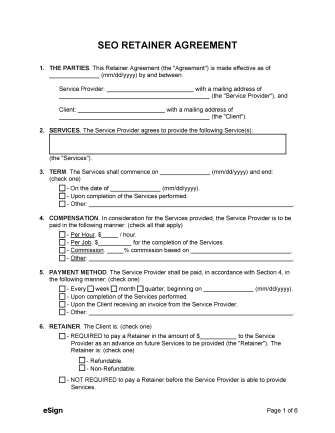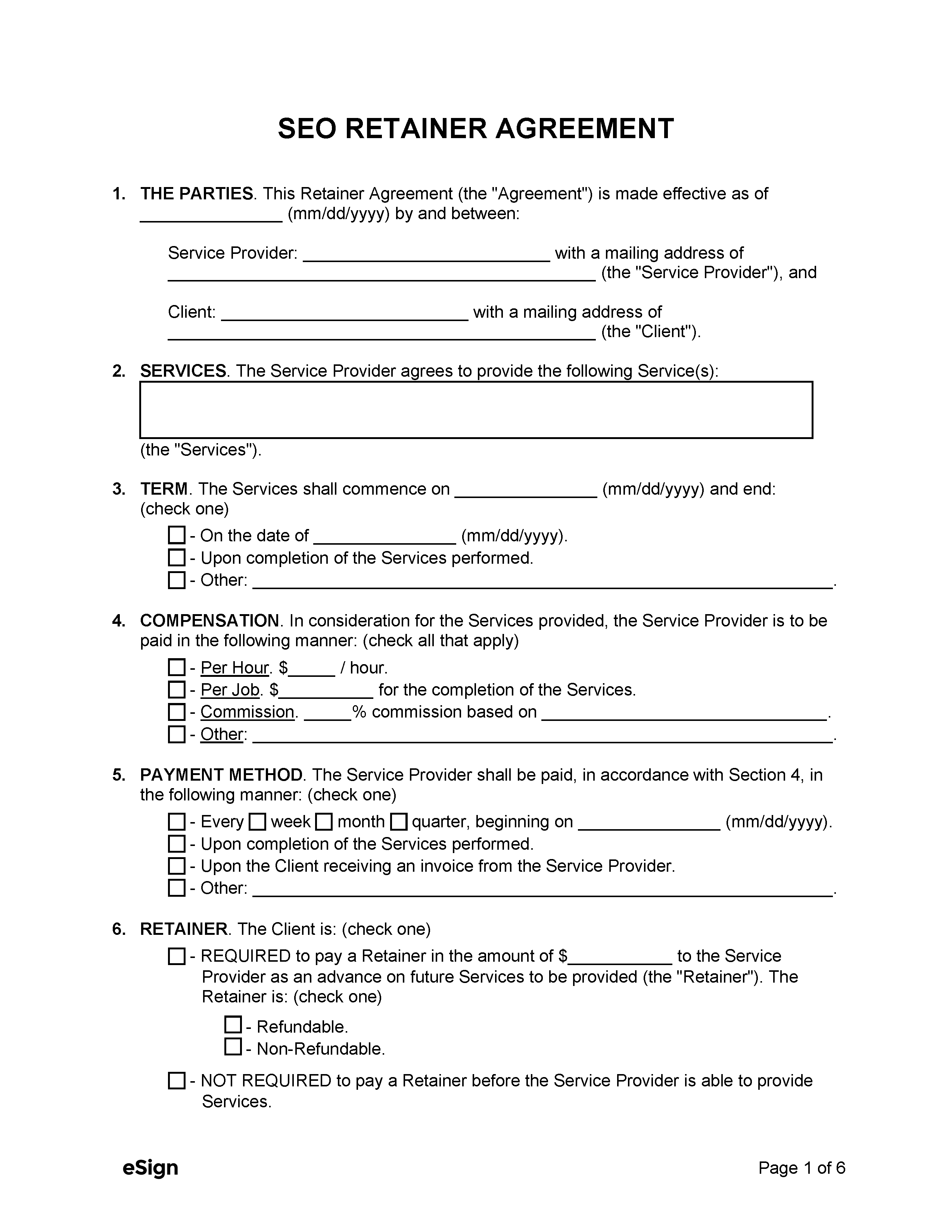How an SEO Retainer Works
The SEO specialist is paid a retainer fee at the start of the term to cover a specific amount of work. The advantage of hiring a consultant on retainer is it enables the website to be updated and adapted over the long term.
Projects could take many months to complete, and often the consultant will receive a retainer fee at the beginning of each month or a new group of tasks.
How Retainer Fees Are Determined
- Agency/freelancer expertise and experience.
- Scope of work.
- Website size and complexity.
- Frequency of updates required.
- Competition within the client’s industry.
Sample
Download: PDF, Word (.docx), OpenDocument
SEO RETAINER AGREEMENT
1. THE PARTIES. This Retainer Agreement (the “Agreement”) is made effective as of [MM/DD/YYYY] by and between:
Service Provider: [SERVICE PROVIDER NAME], with a mailing address of
[SERVICE PROVIDER ADDRESS] (the “Service Provider”), and
Client: [CLIENT NAME], with a mailing address of
[CLIENT ADDRESS] (the “Client”).
2. SERVICES. The Service Provider agrees to provide the following Service(s): [DESCRIBE SERVICE(S)]. (hereinafter the “Services”).
3. TERM. The Services shall commence on [MM/DD/YYYY] and end upon either party providing [#] days’ notice.
4. COMPENSATION. In consideration for the Services provided, the Service Provider is to be paid the following compensation: [DESCRIBE COMPENSATION].
5. PAYMENT METHOD. The Service Provider shall be paid, in accordance with section 4, within [#] days upon the Client receiving an invoice from the Service Provider.
6. RETAINER. The Client is required to pay a retainer of $[AMOUNT].
7. DISPUTES. If any dispute arises under this Agreement, the parties shall negotiate in good faith to settle such dispute. If the parties cannot resolve such disputes themselves, then either party may submit the dispute to mediation by a mediator approved by both parties.
8. INDEPENDENT CONTRACTOR STATUS. The Service Provider is an independent contractor, and neither the Service Provider’s employees nor contract personnel are or shall be deemed the Client’s employees.
9. NON-DISCLOSURE. The Service Provider agrees not to disclose or use the Client’s proprietary or confidential information without prior written consent, except as needed to perform the Services, recognizing that such actions would cause irreparable harm to the Client.
10. INDEMNIFICATION. The Service Provider shall indemnify and hold the Client harmless from any loss or liability from performing the Services under this Agreement.
11. GOVERNING LAW. This Agreement shall be governed by the laws of the State of [STATE NAME].
IN WITNESS WHEREOF, the parties hereto have executed this Agreement on the dates written hereunder.
Service Provider’s Signature: ______________________ Date: [MM/DD/YYYY]
Print Name: [SERVICE PROVIDER NAME]
Client’s Signature: ______________________ Date: [MM/DD/YYYY]
Print Name [CLIENT NAME]

